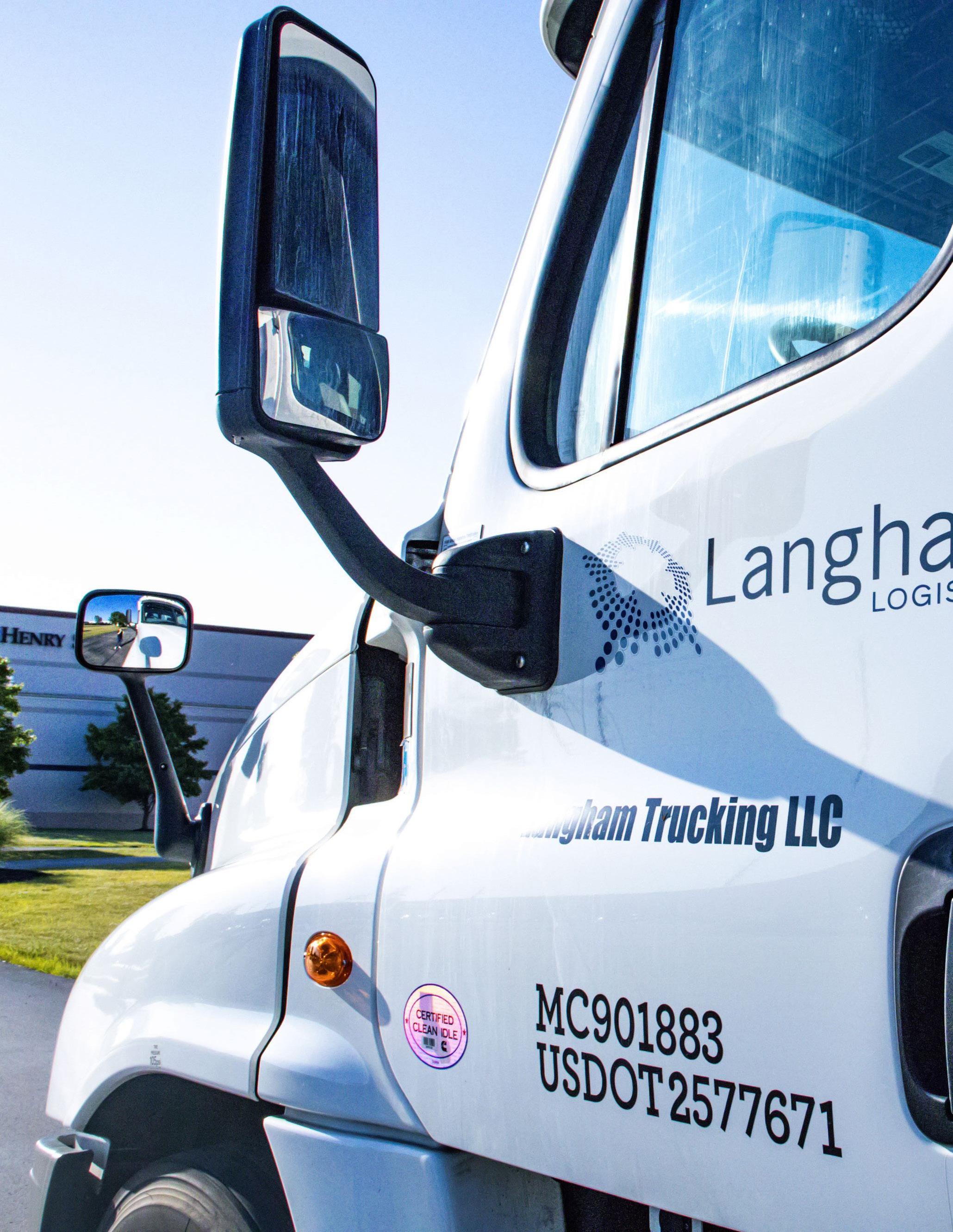The Critical Link
Reshoring, Risk & Readiness
How Langham is Reinforcing the Future of Pharma
Through Innovation and Insight
Inside: Cold chain technology, regulatory readiness, U.S. manufacturing shifts, and more.





How Langham is Reinforcing the Future of Pharma
Through Innovation and Insight
Inside: Cold chain technology, regulatory readiness, U.S. manufacturing shifts, and more.




At Langham Logistics, we’re focused on what matters most—protecting the supply chain for those who rely on it. That means precision in the pharmaceutical space, clarity in compliance, and resilience in the face of risk.
In this issue, we’re sharing how our teams are advancing proactive security protocols, preparing for regulatory change, and ensuring our partners—like you—can navigate what’s next with confidence.
We’re also celebrating new talent joining our leadership team, continued investment in cold-chain infrastructure, and opportunities to elevate service through innovation and strategy.
Thank you for your continued partnership. We’re proud to support your mission—and honored to help deliver life-changing results.
With gratitude,
Cathy Langham Chief Executive Officer Langham Logistics


ARTICLE complete transparency from origin to destination. Our transportation management platform integrates with other systems for live location tracking and, when needed, provides enhanced visibility through pallet-level sensors.
A detailed look at Langham’s approach to supply chain security within the pharmaceutical sector, focusing on regulatory compliance, product integrity, and risk mitigation.
Each shipment is traceable to the unit level with DSCSA-compliant serialization and barcoding. Our clients know exactly where their products are and under what conditions they are being stored or transported at all times.
In pharmaceutical logistics, security is not just about protecting assets—it is about preserving patient health, safeguarding brand integrity, and meeting rigorous regulatory standards. From active pharmaceutical ingredients (APIs) to biologics and vaccines, every product in motion must be protected against theft, temperature excursions, cyber threats, and compliance failures.
Langham Logistics understands these stakes. As a Board of Pharmacy–licensed, GDPcompliant third-party logistics provider, we specialize in securing every link of the life sciences supply chain through a combination of best-in-class technology, operational discipline, and regulatory expertise.
Visibility is the foundation of supply chain security. Langham leverages GPS-enabled tracking, real-time temperature monitoring, and advanced inventory systems to ensure
Product integrity starts with temperature control. Our cGMP-certified facilities offer validated storage environments across the entire thermal spectrum from controlled room temperature (CRT) and refrigerated storage to ultra-low temperature (ULT) freezers. These environments are maintained by 21 CFR Part 11–compliant monitoring systems, providing precision for biologics, vaccines, and other critical therapeutics.
Cold chain transportation solutions include validated passive and active packaging, with 24/7 environmental tracking. Every lane is risk-assessed, every deviation is alerted in real time, and contingency planning is embedded into our operational workflow.If passed, the bill would prohibit federal agencies from:
Langham’s security model is layered and proactive. Our warehouses are protected by biometric access controls, facial recognition systems, RFID tracking, and high-resolution surveillance covering all docks and entry points. Cloud-based third-party surveillance



systems send real-time alerts in the event of a breach, mechanical failure, or environmental hazard.
In transit, we vet all transportation providers through our comprehensive integrated technology platforms as well as verifying safety metrics. We also offer protective escorts when needed through specialized partners. Our affiliations with organizations such as C-TPAT, TAPA, and the Pharmaceutical Cargo Security Coalition ensure we remain aligned with industry best practices and intelligence.
A secure supply chain must also be a resilient one. Langham actively monitors for disruptions, including theft attempts, vehicle breakdowns, seal anomalies, and cargo rejections. Every incident, no matter how minor, is documented, investigated, and followed up with improvements.
We perform transportation lane security assessments, conduct regular audits of our carrier network, and provide clients with comprehensive incident reporting. Our mission is to reduce the likelihood of disruption and respond decisively when it occurs.
Pharmaceutical supply chains are digital as well as physical. Langham employs strong encryption protocols, access controls, and IT system audits to ensure client data remains secure. We work closely with clients to protect the integrity of sensitive records, shipment details, and compliance documentation.
Cybersecurity is not optional; it is an integral component of modern logistics, and we treat it with the same rigor as cold chain compliance and facility security.
Security at Langham is more than a system; it is a culture. Every member of our team is trained to understand and uphold regulatory requirements from the FDA, USP, cGMP, and other governing bodies. Our operations are informed by decades of experience in life sciences logistics and guided by continuous improvement.
With dedicated pharmaceutical facilities in Indiana, Arizona, and Pennsylvania and plans to expand into North Carolina, Ohio, and Massachusetts, Langham provides national scale with local expertise. Seventy percent of our business is in life sciences, and our clients include seven of the world’s top twenty pharmaceutical companies.
The pharmaceutical supply chain does not tolerate shortcuts. That is why Langham invests in the infrastructure, technology, and talent required to ensure every shipment arrives safe, secure, and compliant. From validated cold chain solutions to multilayered facility security and transportation vetting, we help clients safeguard patient well-being.





“Ronald is a proven leader who understands what our clients value most—responsiveness, flexibility, and precision. His perspective will help Langham continue to deliver tailored solutions that meet the complex demands of modern pharma transportation.
”—Cathy Langham, CEO
With over 25 years of industry experience, Ronald Gibson joins Langham to lead transportation growth initiatives and expand strategic partnerships in life sciences logistics.

Langham Logistics is pleased to welcome Ronald Gibson to the team as Senior Business Development Manager. With more than 25 years of experience in transportation and logistics leadership, Ronald brings a strategic, client-first mindset to his new role—focused on accelerating Langham’s transportation growth across life sciences and healthcare sectors.
Ronald’s deep industry expertise includes freight optimization, carrier network development, and compliance-driven transportation strategies. In his new role, he will work closely with operations and executive leadership to expand Langham’s footprint in high-performance, highly regulated logistics environments.

ARTICLE Controlled room temperature (CRT) and ultra-low temperature storage aren’t just capabilities—they’re competitive differentiators. This feature explores the infrastructure, validation, and automation shaping the next generation of pharmaready warehousing.
Langham’s facilities are fully validated to meet 21 CFR Part 11 requirements, with real-time environmental monitoring, escalation protocols, and digital logs that support FDA audit readiness.


The pharmaceutical industry is entering a critical era where temperature-controlled storage—spanning both Controlled Room Temperature (CRT: 15–25°C) and refrigerated (2–8°C) environments—plays a pivotal role in product integrity, patient safety, and supply chain efficiency. As demand surges for biologics, vaccines, and specialized treatments, reliable temperature-controlled logistics has become not just a necessity but a strategic asset.
From 2020 through 2022, the COVID-19 pandemic reshaped global supply chains and thrust cold-chain logistics into the spotlight. The distribution of mRNA-based vaccines—many of which required ultra-cold or refrigerated storage—challenged existing infrastructure and underscored the need for flexible, scalable temperature management. Even as vaccine production has stabilized, the demand for both CRT and refrigerated (2–8°C) storage remains high.
Today, many of the most in-demand therapies—including seasonal flu vaccines,

cell and gene therapies, and obesity treatments like Wegovy (Novo Nordisk) and Mounjaro (Eli Lilly)—must be stored between 2–8°C. This range has become the standard requirement for most finished pharmaceutical products, setting a new bar for storage capabilities across the industry.
A variety of forces are shaping the growing need for robust CRT and refrigerated storage:
• Biologics & Personalized: Medicine
These advanced therapies are highly sensitive to temperature variation. While some require CRT conditions, many must be stored at 2–8°C to maintain efficacy—especially through distribution and last-mile delivery.
• Vaccines: Seasonal and emerging infectious disease vaccines continue to rely on cold-chain systems, with most finished products requiring refrigeration to ensure safety and potency.
• Specialty and Rare Disease Treatments: Oncology drugs, autoimmune therapies, and other high-value treatments often fall within the 2–8°C range due to their sensitivity and complexity.
• Obesity Medications: The global rise in obesity, along with the success of GLP1 receptor agonists, is driving explosive growth in refrigerated drug volumes.
Together, these trends are transforming not only what we store—but how we store it.
The coming decade is expected to bring rapid growth across all categories of temperature-controlled storage—but refrigerated (2–8°C) volumes are projected to expand the fastest.
• Biologics: 6% CAGR through 2035
• Vaccines: 5% CAGR
• Obesity Medications: Volume expected to triple by 2030
While CRT (15–25°C) storage will continue to be essential, refrigerated storage is forecasted to account for the majority of growth, especially in finished goods storage. By 2030, storage utilization across both CRT and 2–8°C is projected to exceed 90%, with refrigeration-specific shortages leading to storage price increases of up to 25%.
The temperature-controlled logistics industry is responding with a combination of technological advancement and operational expansion:
• Automation & Robotics: Facilities are integrating automated storage systems, robotic palletizers, and smart sensors to streamline operations and reduce human error—particularly critical in 2–8°C environments.
• Sustainable Solutions: As energy usage becomes a top concern, newer facilities are adopting energy-efficient refrigeration technologies to meet both operational goals and ESG standards.
• Blockchain & Data Transparency
Real-time temperature tracking and blockchain verification are improving traceability, regulatory compliance, and quality control throughout the supply chain.
These innovations will be especially vital as demand intensifies for high-volume, high-value products requiring strict temperature control.
The next 10 years will challenge pharmaceutical logistics in new ways, with 2–8°C refrigerated storage leading the charge. Companies that invest early in scalable, compliant cold-chain infrastructure will be better positioned to ensure product availability, maintain quality, and stay ahead of regulatory demands.
At Langham Logistics, we understand the complexity of temperature-controlled pharmaceutical storage. From CRT to refrigerated 2–8°C solutions, our facilities and processes are designed to support safe, reliable, and scalable pharmaceutical distribution.
Need support for your temperature-sensitive pharmaceutical products?
Connect with Langham Logistics today to learn how we can help you stay prepared for what’s next.



Practical insights for pharma leaders evaluating 3PLs—from quality standards to cold chain readiness
The stakes in pharmaceutical logistics are high. A single lapse in temperature control, security, or compliance can lead to lost product, regulatory violations, and most importantly, risk to patient safety. That’s why selecting the right third-party logistics (3PL) provider is one of the most critical decisions a pharmaceutical company can make.
But not all logistics partners are created equal. Whether managing clinical trial materials, vaccines, APIs, or finished goods, pharmaceutical manufacturers need a partner with deep industry expertise, end-to-end visibility, and rigorous regulatory alignment. Here’s what to look for when evaluating a 3PL partner, and how Langham Logistics helps leading life sciences brands move with confidence.
Pharmaceutical logistics requires more than basic transportation and warehousing services.
Your 3PL must understand and uphold the standards of FDA, USP, cGMP, GDP, and 21 CFR Part 11. These certifications are not just badges. They are the foundation of patient safety and supply chain integrity.
Langham’s dedicated pharmaceutical facilities are Board of Pharmacy–licensed and GDPcompliant, with rigorous processes built to exceed regulatory requirements. From environmental monitoring to staff training, compliance is part of every step in our operations.
Maintaining temperature control from origin to destination is non-negotiable in pharmaceutical logistics. Your 3PL should offer validated cold chain capabilities for a wide range of products, including controlled room temperature, refrigerated, frozen, and ultra-low temperature storage.
Langham’s cGMP-certified facilities offer precisely that. With 24/7 real-time temperature monitoring, passive and active shipping solutions, and facility-wide environmental mapping, we ensure that critical pharmaceuticals maintain integrity throughout transit and storage.
In an industry where one delay or deviation can be costly, real-time visibility is essential. Look for a 3PL with integrated transport management systems (TMS), GPS tracking, and proactive alerting. This level of visibility reduces risk, improves planning, and ensures that your team stays informed.
Langham integrates GPS tracking through Project44 and uses Tive sensors for enhanced product-level insight. Our clients can access real-time shipment and temperature data at every phase of the journey. That means fewer surprises, faster response, and more control over your supply chain.
Pharmaceutical products are high-value targets. Your logistics partner should have physical security measures in place—inside their facilities and throughout transportation. This includes surveillance, restricted access, digital tracking, and robust vetting of transportation providers.
Langham employs biometric access controls, facial recognition, and cloud-based surveillance systems across all warehouse entry points. Our carrier partners are thoroughly vetted through platforms like Highway.com and Carrier Assure. If needed, we also provide protective escorts through trusted security firms.
Pharmaceutical companies often need to scale quickly—whether for a new clinical trial, product launch, or market expansion. A reliable 3PL partner must offer operational
agility and strategic planning to support your growth without compromising quality or compliance.
Langham supports some of the world’s top pharmaceutical brands through dedicated, scalable infrastructure. With locations in Indiana, Arizona, and Pennsylvania, and planned expansions to Ohio, North Carolina, and Massachusetts, we provide national reach with industry-specific specialization.
Trust is built on transparency and performance. The best 3PLs will offer proactive communication, a culture of accountability, and a continuous improvement mindset. You should feel like your logistics partner is an extension of your team. Not just a vendor.
Langham’s customer-focused culture is grounded in our quality-first approach. With decades of experience in pharmaceutical logistics, we understand what is at stake. Every shipment. Every data point. Every decision. We don’t just move freight; we protect patient outcomes.
When selecting a 3PL for your pharmaceutical logistics needs, look beyond price and capacity. Look for a partner who shares your commitment to quality, compliance, and innovation. The right 3PL will help you reduce risk, increase visibility, and improve time-to-market.
We believe that service extends beyond the supply chain. Langham supports nonprofit partners including United Way of Central Indiana and Cancer Support Community, while encouraging our associates to give back through volunteer time and fundraising drives.
These efforts reflect our values—and our belief in growing stronger communities, together.

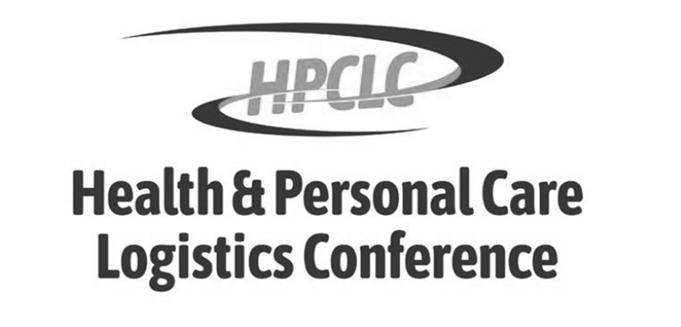
Health and personal care logistics is a critical aspect of the healthcare industry, focusing on the efficient movement, storage, and management of medical supplies, pharmaceuticals, and personal care products.
This field ensures that essential items are delivered safely and promptly to hospitals, clinics, pharmacies, and ultimately, to patients. With the ever-evolving landscape of healthcare needs and technological advancements, health and personal care logistics plays a vital role in maintaining supply chain integrity, reducing costs, and improving patient outcomes.
By leveraging innovative solutions and best practices, professionals in this sector strive to enhance the overall efficiency and reliability of healthcare delivery systems..

BioCrossroads advances Indiana’s life sciences industry by connecting corporate, academic, and philanthropic partners; facilitating investments in promising startups and building new enterprises; and educating through conferences, reports, and market knowledge..
Our Mission:
We aim to amplify awareness of Indiana’s capabilities in research and development, support talent development, and strengthen the workforce pipeline. Through the support of CICP and its branded initiatives, we foster a thriving ecosystem that propels the state to the forefront of scientific and healthcare advancements.
BioCrossroads’ mission is to ignite innovation and propel Indiana’s life sciences sector into a future marked by robust growth, quality employment opportunities, and enhanced economic impact. We are dedicated to creating an ecosystem that nurtures research and development, ensuring the state’s continued prominence on the world stage.
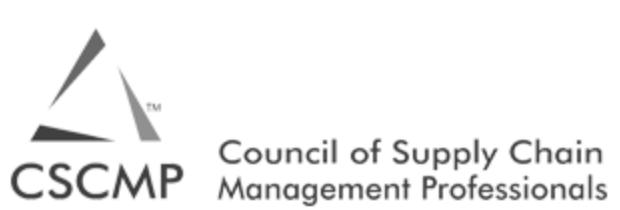
CSCMP exists to: provide opportunities for supply chain professionals to communicate in order to develop and improve their supply chain management skills; identify and conduct research which adds to the knowledge base of supply chain theory and practice; and create awareness of the significance of supply chain to business and to the economy.
As a professional not-for-profit organization, the Council of Supply Chain Management Professionals holds these values:
• We operate with the highest standards of integrity.
• We are dedicated to professional development.
• We are an inclusive organization.
• We champion thought leadership and innovation.
• We offer knowledge and expertise of the highest quality.
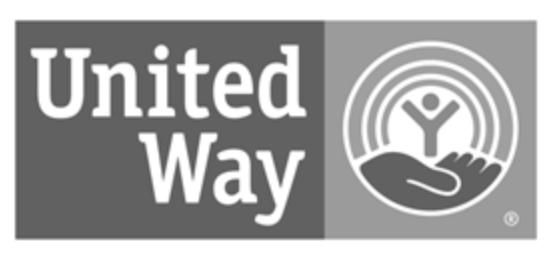
United Way of Central Indiana believes in fairness and equality and recognizes the value of inclusiveness by encouraging the full participation of all individuals in fulfilling its mission.United Way of Central Indiana recognizes the strength of diversity which acknowledges and celebrates a society of different individuals, cultures and perspectives whose knowledge, skills and talents enrich and strengthen us as a people.
United Way of Central Indiana believes in and practices equal opportunity in its operations, community engagement, employment and decisionmaking, and encourages inclusion of diverse members of our community.
We do this by meeting specific goals for:

So that no one faces cancer alone.
Cancer Support Community – Central Indiana exists so that no one faces cancer alone. We offer a comprehensive network of programs and services for cancer patients, and their loved ones. We treat the whole family – the whole time.
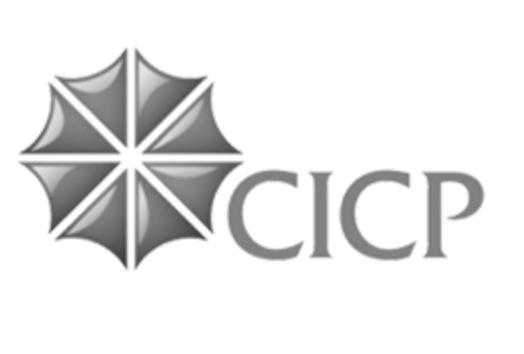
The Central Indiana Corporate Partnership (CICP) was formed in 1999 to bring together the chief executives of Central Indiana’s prominent corporations, foundations and university presidents in a strategic and collaborative effort dedicated to the region’s continued prosperity and growth.
CICP and its members continue to give back to the communities they serve in numerous ways to make Central Indiana a better place to live, work and play. Central Indiana has a vibrant business, university and philanthropic community focused on collaboration, progress and positive change.
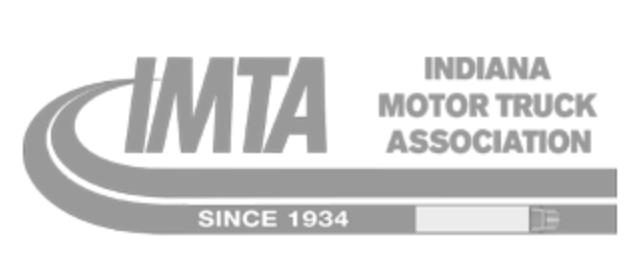
Mission – To serve, represent, and promote the interests of the trucking industry by enhancing its image, efficiency and productivity through focus on safety and advocacy.
Vision – The Indiana Motor Truck Association will be the advocate for the trucking industry by promoting highway safety, providing educational programs and fostering a healthy business environment.

When a leading pharmaceutical company needed better visibility and cost control, they turned to Langham for a four-phase logistics transformation. We helped them:
• Mine historical performance data
• Benchmark pricing and service expectations
• Improve KPIs across key freight lanes
• Strengthen QA and SOP compliance Untangling Complexity in Pharma
The myriad complexities of most pharmaceutical and biologics manufacturing supply chains are the product of countless suppliers leveraging an array of carriers to
deliver vast portfolios of direct and indirect research, development, manufacturing, and marketing materials. In many cases, longstanding relationships with suppliers who have proven to be reliable in meeting strict production schedules are assumed to be optimized from a landed cost perspective due to longevity and trust with the buyer.
In the logistics industry, negotiated carrier rates can be considered insignificant components of the value chain, with most manufacturers more closely focused on their overall spend across a global supply network.
The opportunity to maximize cost savings on transportation through a partnership with a reliable 3PL can easily be eclipsed by the prospect of more substantial savings
opportunities through price negotiation and supply agreements with strategic partners, globally. However, the realization of true overall cost reductions in your supply chain often lies with leaning on your 3PL to provide reliable business intelligence and network visibility.
Langham’s “Supply Chain Logistics Infusion” services provide a window to increasing profit margins while offering the basis for year-overyear cost savings in even the most complex of pharmaceutical manufacturer supply networks.
Langham’s proven, four-phased approach to identifying easy wins for pharma supply chains begins with comprehensive data mining of shipment transactions and ends with a deliverable solution to the client. This solution establishes a Single Point of Contact (SPOC) and line-of-sight visibility of carrier network spend and key performance indicators (KPI’s).
An effective Phase One analysis of the network is dependent on the data accuracy that Langham has invested in capturing on behalf of its clients. We track intricate details of every supplier shipment we tender so that trends can be identified and variants isolated.
In Phase Two, pricing structures and service agreements are benchmarked to ensure the appropriate carrier partners are assigned to loads based on origins, destinations, and client service levels. Where the opportunity
to press cost out of the lane exists, Langham will optimize to ensure service levels are prioritized by the most cost-effective solution provider that meets our pharma customers’ carrier standards.
Equipped with a comprehensive understanding of our client supply network, Phase Three positions our analyst team to affect rapid and long-term improvements to our clients’ KPIs with one-to-one communication with carriers. This creates an environment where all performance metrics, adverse event triage, and corrective action implementation is managed through Langham, with ongoing updates provided through our custom client portal and Langham’s Supply Chain Business Intelligence reporting.
Phase Four is characterized by efficient communications between the client, freight manager (Langham Logistics SPOC), and the supplier to create a shared vision of success that can be measured, acted on with immediacy, and continually improved through a vetted operational excellence feedback loop.

This feature explores how Langham Logistics uses validated infrastructure, real-time monitoring, automated reporting, and expert-driven SOPs to deliver fully compliant cold chain logistics. The blog reinforces Langham’s positioning as a high-tech, high-integrity partner in pharmaceutical storage and transportation
Cold chain compliance requires continuous oversight. Relying solely on manual checks or fragmented data is no longer sufficient for high-value pharmaceutical products.
Maintaining cold chain integrity is one of the most critical challenges in pharmaceutical logistics. Even a brief temperature deviation can jeopardize product efficacy, compromise patient safety, and expose companies to regulatory consequences. As the stakes rise and global supply chains become more complex, technology is taking center stage in how companies secure, monitor, and validate every link in the cold chain.
At Langham Logistics, innovation and compliance go hand in hand. Here’s how our proprietary systems and team expertise work together to help pharmaceutical manufacturers and distributors stay compliant and protected.
Langham continuously monitors realtime shipment temperatures using secure connections to carrier platforms. Our team accesses shipment-level temperature data as it moves through the supply chain. After each delivery, a full audit is performed, and the results are uploaded to Langham’s proprietary Transportation Management System (TMS) for permanent documentation.
This ensures clients have full visibility into cold chain performance—and the records to support internal QA and regulatory compliance efforts.
Compliance starts at the facility level. All of Langham’s pharmaceutical storage environments—from controlled room temperature (CRT) to ultra-low temperature

(ULT)—are supported by validated systems and infrastructure.
Our warehouses meet 21 CFR Part 11 standards, with automated monitoring, alarm systems, and digital logs that satisfy FDA audit requirements. Every refrigeration unit is temperature-mapped. Every alert is time-stamped and escalated for review and resolution.
This level of control supports client audits, product traceability, and long-term confidence in storage performance.
While we do not use algorithmic route scoring or performance-based routing, Langham’s security and operations teams design transportation SOPs to proactively manage risk and maintain operational integrity.
Using real-world security intelligence and operational insight, we create customized SOPs and risk-mitigation strategies for clients. This includes defining routes that avoid high-risk areas, minimize time in transit, and improve delivery consistency for temperature-sensitive goods.
Langham’s proprietary Security, Tracking, and TMS systems are designed to exceed GDP and cGMP requirements. These tools document chain-of-custody, generate digital compliance reports, and support proactive alerting for any temperature excursions, seal anomalies, or delays.
Automated integration between warehouse systems and client-facing portals also helps streamline recordkeeping and audit preparation—giving our clients a deeper level of control and visibility.
Technology is only as strong as the team behind it. At Langham, we combine proprietary systems with highly trained subject matter experts who monitor, interpret, and act on data in real-time. Their actions are aligned with each client’s QA requirements and MSAs, ensuring our operations remain both compliant and customer-focused.
With the proposed Biosecure Act and rising geopolitical risks, pharmaceutical companies are bringing production and supply chain partnerships closer to home. Langham is prepared for this shift. Our U.S.-based warehousing, validated cold chain infrastructure, and pharma-trained teams help clients reduce dependency on global routes and maintain full control. With bipartisan support and global implications, the Biosecure Act was introduced by the U.S. House of Representatives in January 2024. If passed, the bill will impact how pharmaceutical and life science companies do business inside the United States—and who they can do business with.
As one of the nation’s leading logistics partners in these industries, the team at Langham Logistics is following this bill closely. In this article, we answer some of the biggest Biosecure Act questions so our clients can stay ahead of this potential legislation as well.
The Biosecure Act (H.R. 7085) is a proposed piece of legislation aimed at enhancing the security of pharmaceutical and life science manufacturing in the U.S. The bill prohibits
federal contracting with biotechnology providers associated with foreign adversaries and those considered “a biotechnology company of concern.” The bill specifically names four companies operating out of China: BGI, MGI, Complete Genomics, and WuXi AppTec.
If passed, the bill would prohibit federal agencies from:
• Procuring or obtaining any biotechnology equipment or service provided by a biotech company of concern.
• Entering or renewing contracts that require direct use of equipment or services from these companies.
• Issuing grant funds or loans for activities connected to these companies.
The bill defines “a biotechnology company of concern” as an entity: 1) subject to the direction of a foreign adversary’s government, 2) involved in the manufacturing and distribution of biotech equipment and services, and 3) posing a risk to U.S. national security based on these activities.
The bill does allow executive agencies to waive the restrictions on a case-by-case basis under certain circumstances for a limited period. The Office of Management and Budget will be responsible for updating the list of organizations considered companies of concern.
The bill asserts that through governmental and business collaborations, the People’s Republic of China (PRC) has gained


access to millions of American’s genomic data. Research indicates the country is using the information for a competitive business advantage to control the global pharmaceutical market and potentially military purposes. Legislators wrote the Biosecure Act to prevent this from continuing by stopping U.S. taxpayer money from fueling these hostile biotech practices.
The bill does not restrict independent U.S. pharma companies from doing business with these foreign entities but does prohibit them from receiving any governmental funds if they do. The federal government is the largest purchaser of prescription drugs in the U.S. and funds billions in pharmaceutical research and development every year. That means the bill would affect most pharma companies operating in the U.S.
Many pharma companies, including the 20 largest, heavily rely on the named biotechnology companies of concern as contract manufacturers, especially WuXi. The company has contributed to the development of several drugs in the US.
Opponents of the bill believe the legislation will slow drug development while companies cut ties and find different manufacturers. The move also could disrupt the industry by driving smaller biotechs that rely solely on these foreign companies out of business. The domino effect could lead to drug shortages.
One of the biggest appeals of collaborating with Chinese companies is the low price of producing and sourcing active pharmaceutical ingredients (APIs). Therefore,


U.S. consumers could see drug cost fluctuations as companies partner with alternative manufacturers.
Proponents of the bill see the benefits of pharma companies diversifying their supply chains rather than relying on contract partners primarily in one country. Many companies are already reviewing existing relationships and looking at new sourcing partners in India, Europe, and domestically. The legislation could prompt pharmaceutical and life science manufacturers to reshore at least a portion of their operations, which would be a boost to the U.S. economy.



Several additional legislators—from both sides of the aisle—have signed onto the Biosecure Act indicating it has a strong chance of passing. A similar bill is moving through the Senate. Therefore, some form of this legislation is likely to become law in the months following the 2024 presidential election. Since its introduction in the House, the bill has been modified to allow existing contracts to be grandfathered until 2032 to avoid drug shortages.
Even without the legislation, drug companies are taking action to get ready. At Langham Logistics, we are too. We already support
global supply chains and pharmaceutical manufacturing worldwide. Domestically, we have temperature-controlled warehouses strategically positioned across the country to meet critical drug delivery deadlines. In fact, our facilities are rated among the top 3% in the country.
We partner with pharma and life science companies every day to reduce costs, improve speed, and meet the most rigorous quality standards. Should the Biosecure Act pass, Langham Logistics will be ready to work with new manufacturers, service different locations, and stay at the forefront of pharmaceutical innovation.
Langham Logistics recently celebrated the grand opening of its newest 225,000-square-foot GMP-compliant facility in Easton, Pennsylvania—marking a major milestone in its national expansion strategy.
Strategically located near key Northeastern distribution corridors, the Easton facility is purpose-built to serve pharmaceutical and life sciences clients with:
• Controlled room temperature (CRT) storage
• Cold and ultra-low temperature (ULT) capabilities
• 24/7 environmental monitoring
• Validated systems aligned with 21 CFR Part 11 standards
The opening event welcomed clients, partners, and community leaders to tour the space and learn more about Langham’s expanding cold chain footprint. With the addition of Easton, Langham now offers even more scalable, audit-ready solutions for life sciences customers across the U.S.

Langham Logistics, a third-party logistics, warehousing and distribution service provider to the life sciences industry, today announced the opening of a 225,000 sq. ft. distribution center in Easton, PA. The new facility will be dedicated to serving Langham’s pharmaceutical, vaccine and biologics manufacturing and distribution clients with world-class GMP warehousing and storage including over 3,100 pallet locations of validated cold storage (refrigerated and frozen), 25,000 pallet positions of CRT (15-25°C), a dangerous goods room with over 500 pallet positions, and ample ultralow temperature storage in a 100% GMP compliant environment.
The facility located east of Allentown in Easton, PA, will be strategically positioned to

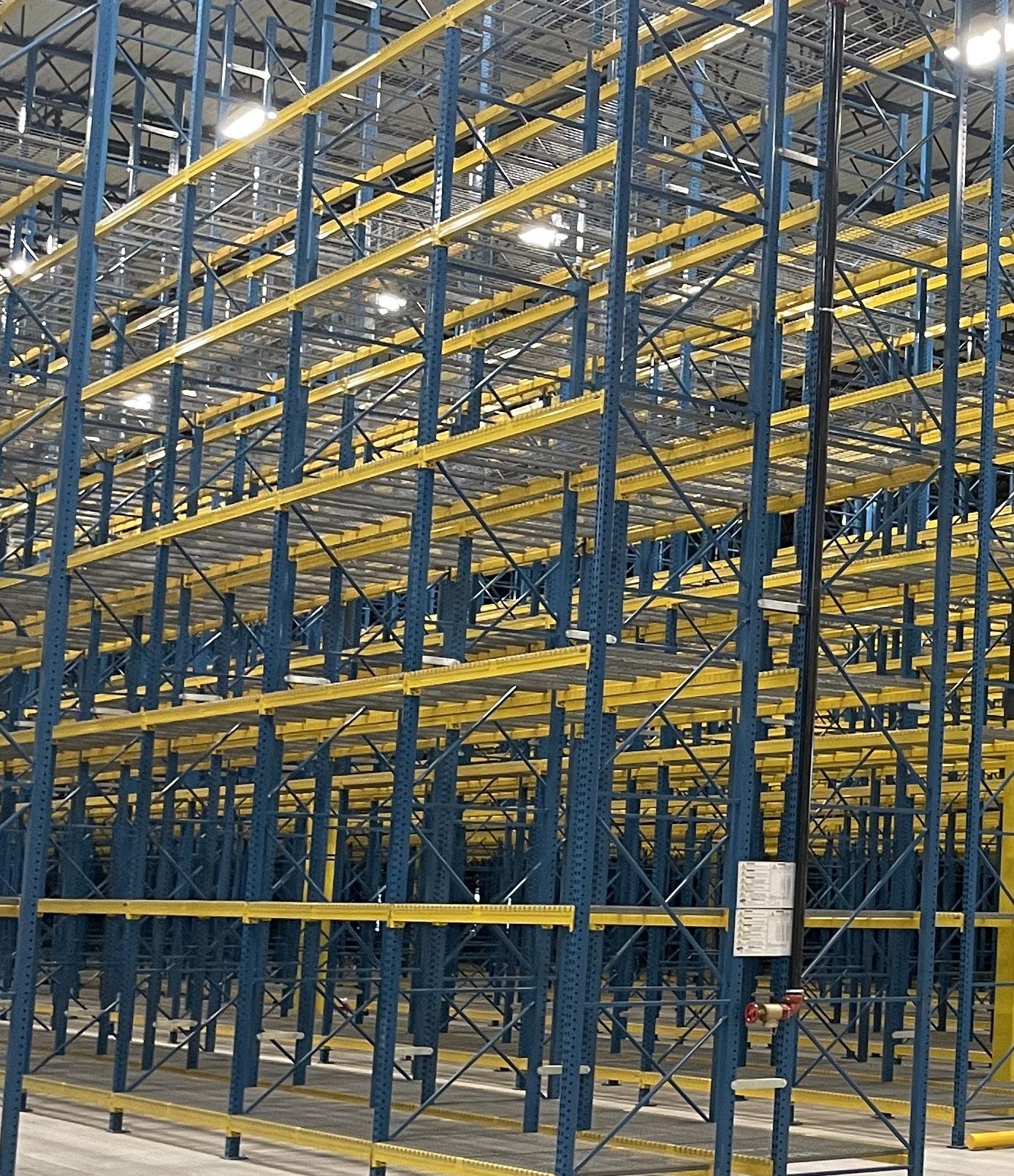

serve Langham’s Life Science clients seeking qualified storage and distribution expertise that enables delivery of life-saving medicines to patients and partners in the eastern US.
As part of Langham’s expanding network of life science 3PL services, the Company’s new location will be specially designed to manage a wide range of investigational materials, finished goods, API’s, drug products and sample storage.
“We are excited about the expanded capabilities our new facility in Easton, PA will provide to both our existing and future life science clients including an expanded focus on business continuity planning for pharmaceutical supply chains”, CEO of Langham Logistics Cathy Langham said.
Langham’s newest addition to their GMP

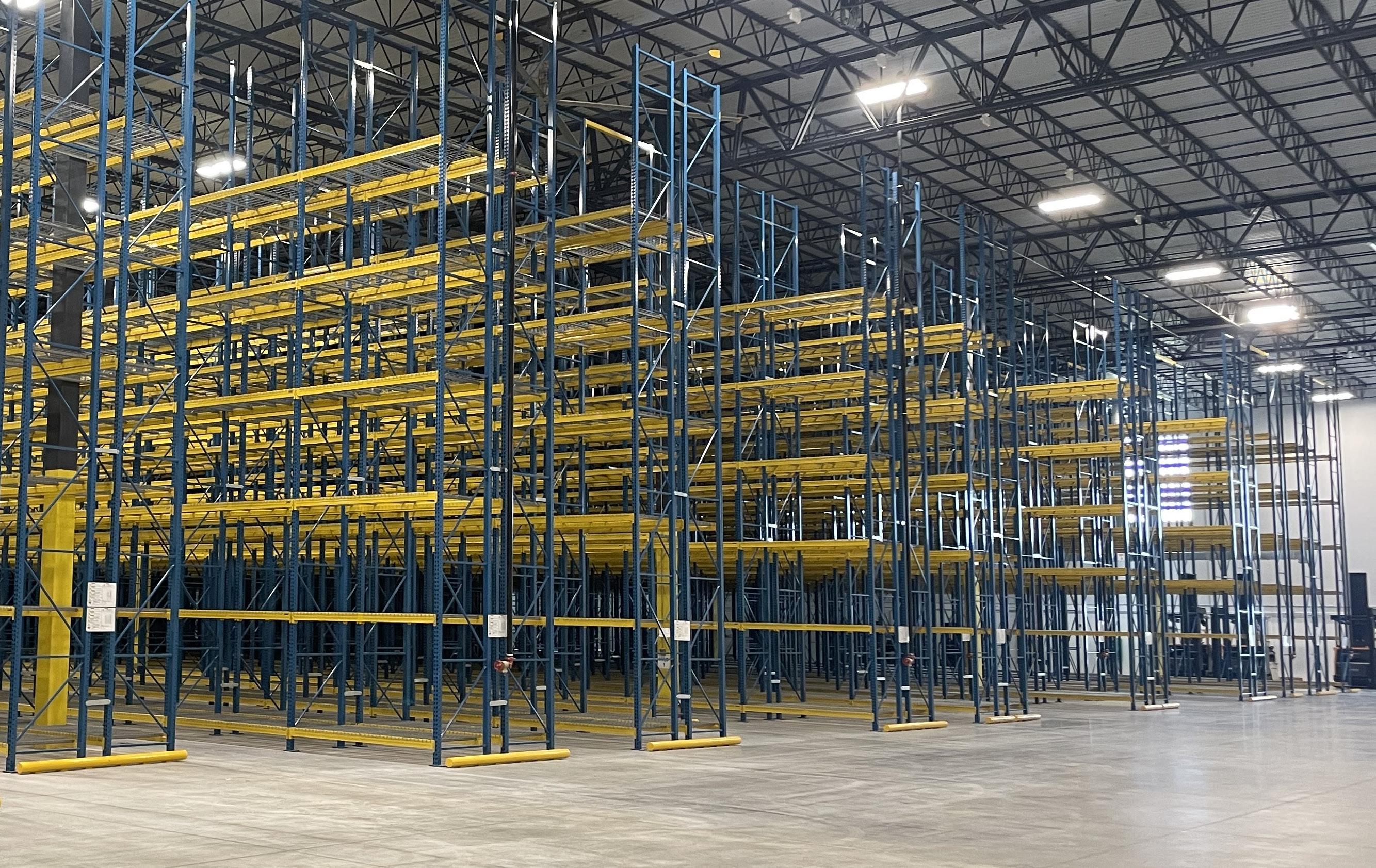
services will include pick, pack and ship capabilities in both CRT and 2°-8°C environments, sampling and testing, and Dangerous Goods storage.
Langham went on to say, “The Easton facility complements our existing capabilities in Phoenix, AZ and Indiana as we continue to execute on our strategic priorities for providing world class life science 3PL services for our clients across the country. We are looking forward to the positive impact the facility will have in ensuring drug supplies and providing economic opportunities for our business partners on the east coast.”
For more information on this new warehousing and fulfillment opportunity or to request a tour of the location, please reach out to the contacts below or visit the Langham Logistics website.
